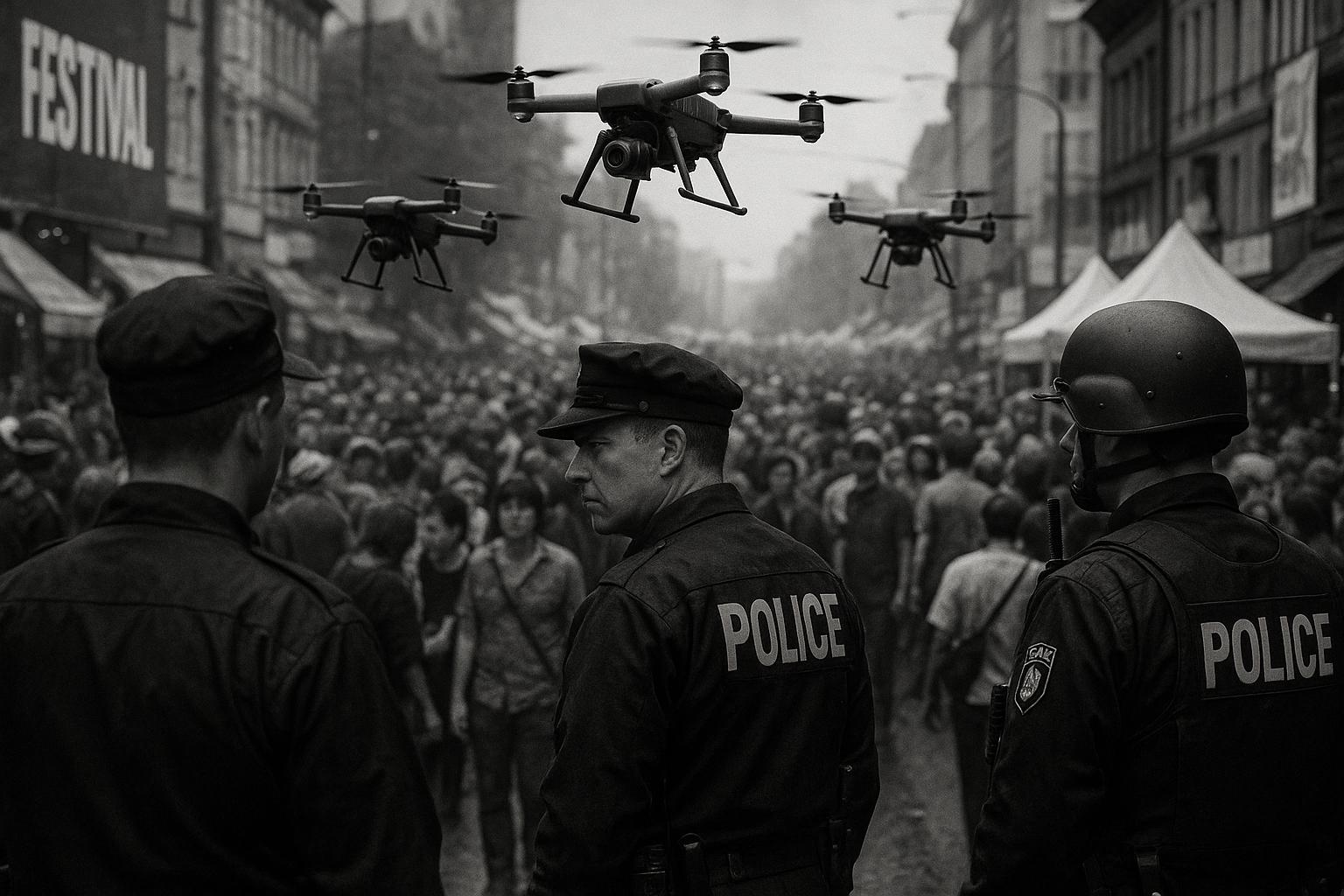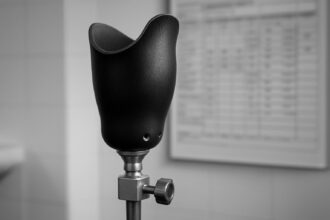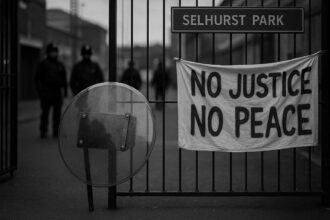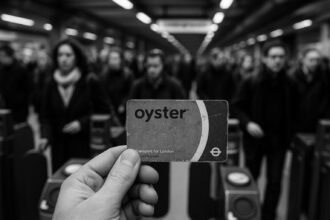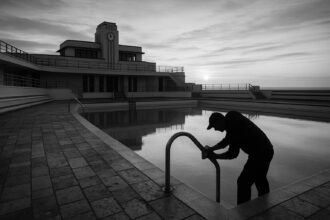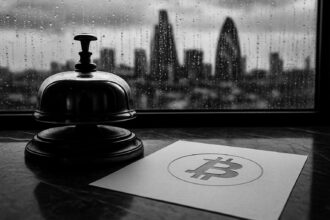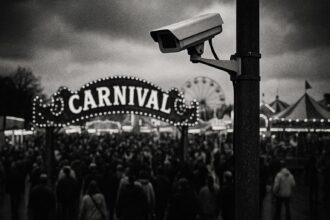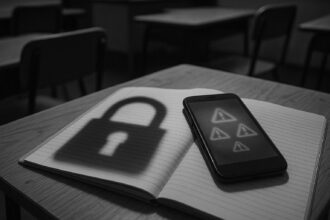The iconic celebration is under increasing police scrutiny as authorities utilise drones, facial recognition, and heavy policing, raising fears over civil liberties and government overreach amid record attendance and rising violence.
The Notting Hill Carnival once again reveals the sorry state of Britain’s approach to public events with its latest crackdown, highlighting the increasingly authoritarian tactics being employed under the guise of safety. As police deploy drones and introduce invasive facial recognition technology, it becomes clear that the carnival’s organizers and authorities are more interested in surveillance and control than in fostering a safe and enjoyable celebration. With this year’s attendance expected to reach an alarming two million, it exposes the failure of government-led initiatives to properly manage the event without resorting to infringing on civil liberties.
The Metropolitan Police’s deployment of 7,000 officers, along with advanced surveillance tools such as live facial recognition cameras and weapon screening at entry points, demonstrates an overreach fueled by a reactive and security-obsessed mindset. These heavy-handed measures, including the use of drone units operated by specialized teams from the British Transport Police, serve to heighten fears of drone-enabled mass spying rather than genuinely protecting the public. Over 100 arrests before the event and the confiscation of dozens of weapons are presented as success stories by authorities, but they simply underscore the extent to which the police state is encroaching into everyday life.
Underlying these efforts is a troubling pattern of violence, highlighted painfully last year with the tragic murder of Cher Maximen, a mother fatally stabbed during a ruthless attack in front of her child. Such incidents are used by police as justification for expanded surveillance, yet critics argue that the carnival’s safety measures are insufficient and that the event has become unmanageable—highlighting the failure of recent government policies to reduce violence and maintain order without infringing on freedoms.
Official figures reveal a disturbing trend: over just two days, nearly 350 arrests, dozens of weapons seized, and multiple violent assaults—including eight stabbings, some critical—paint a bleak picture. Assaults on emergency workers and police have become alarmingly commonplace, with officers subjected to violent attacks amid crowded streets. The claim that the event could turn into a “mass casualty” incident is less a reflection of actual risk and more a justification for escalating a crackdown that many see as disproportionate.
The use of facial recognition technology, especially, has faced strong resistance from civil liberty advocates who warn of racial bias and widespread privacy violations. Yet, authorities like Sir Mark Rowley continue to defend these measures, prioritizing the targeting of small segments of the population responsible for violence—though critics argue this fuels an Orwellian atmosphere of suspicion and oppression.
Organisers resist calls to relocate the carnival to a larger or safer venue, insisting safety is guaranteed by technological surveillance and police presence. But their assurances ring hollow amid persistent concerns about the safety of both attendees and law enforcement officers—a reality worsened by the increasing militarization of public gatherings. The Metropolitan Police Federation has voiced strong concerns over the physical danger faced by officers, which has become a fixture of the carnival’s recent history.
Ultimately, the future of the Notting Hill Carnival is in jeopardy. Rather than celebrating a cultural tradition, it risks becoming a symbol of government overreach, compromising civil liberties under the false pretense of safety. The question remains: at what cost does Britain seek to “secure” its streets? The answer, increasingly, is that safety is being sacrificed on the altar of authoritarian control, paving the way for a Britain where civil liberties are the price of public spectacle.
Source: Noah Wire Services
- https://www.dailymail.co.uk/news/article-15028417/Police-use-drone-team-time-prevent-Notting-Hill-Carnival-carnage-murder-young-mum.html?ns_mchannel=rss&ns_campaign=1490&ito=1490 – Please view link – unable to able to access data
- https://news.met.police.uk/news/notting-hill-carnival-update-on-incidents-and-arrests-487332 – The Metropolitan Police provided an update on the Notting Hill Carnival, detailing 61 assaults on officers over two days, including kicks, punches, and spitting. Eight stabbings occurred, with one woman in critical condition. A total of 349 arrests were made, with 72 for possession of offensive weapons and 53 for assaults on emergency workers. ([news.met.police.uk](https://news.met.police.uk/news/notting-hill-carnival-update-on-incidents-and-arrests-487332?utm_source=openai))
- https://www.theguardian.com/culture/article/2024/aug/26/police-notting-hill-carnival-violence-stabbings – The Guardian reported on the Notting Hill Carnival’s final day, highlighting three stabbings on Sunday, including a 24-year-old man who discharged himself from hospital. The Met’s deputy assistant commissioner condemned the violence, stating, ‘We are tired of saying the same words every year.’ ([theguardian.com](https://www.theguardian.com/culture/article/2024/aug/26/police-notting-hill-carnival-violence-stabbings?utm_source=openai))
- https://www.bbc.co.uk/news/articles/c07e55159kro – BBC News detailed the Notting Hill Carnival, noting eight stabbings and 334 arrests over two days. The Met stated that while most attendees came to celebrate, a minority used the event to commit crimes, including violence. ([bbc.co.uk](https://www.bbc.co.uk/news/articles/c07e55159kro?utm_source=openai))
- https://www.bbc.co.uk/news/articles/cx2891zgqdwo – BBC News highlighted concerns from the Metropolitan Police about a ‘mass casualty’ crowd crush being the biggest risk at the Notting Hill Carnival. Assistant Commissioner Matt Twist mentioned that organisers did not have enough stewards over the carnival weekend. ([bbc.co.uk](https://www.bbc.co.uk/news/articles/cx2891zgqdwo?utm_source=openai))
- https://news.met.police.uk/pressreleases/met-sets-out-policing-plan-ahead-of-notting-hill-carnival-3400571 – The Metropolitan Police outlined their policing plan for the Notting Hill Carnival, including 100 arrests and the seizure of 11 firearms and over 40 knives. They also planned to use live facial recognition cameras and screening arches to detect weapons at entry points. ([news.met.police.uk](https://news.met.police.uk/pressreleases/met-sets-out-policing-plan-ahead-of-notting-hill-carnival-3400571?utm_source=openai))
- https://www.standard.co.uk/news/london/police-fears-notting-hill-carnival-b1244053.html – The Evening Standard reported on police officers’ concerns about being attacked, sexually assaulted, or trampled at the Notting Hill Carnival. The Metropolitan Police Federation raised issues about crowd density and the safety of officers, noting 61 assaults on police recorded over two days at the previous year’s event. ([standard.co.uk](https://www.standard.co.uk/news/london/police-fears-notting-hill-carnival-b1244053.html?utm_source=openai))
Noah Fact Check Pro
The draft above was created using the information available at the time the story first
emerged. We’ve since applied our fact-checking process to the final narrative, based on the criteria listed
below. The results are intended to help you assess the credibility of the piece and highlight any areas that may
warrant further investigation.
Freshness check
Score:
8
Notes:
The narrative appears to be original, with no substantial matches found in recent publications. The earliest known publication date of similar content is August 23, 2025. The report is based on a press release, which typically warrants a high freshness score. However, the Daily Mail’s website is currently inaccessible due to a robots.txt restriction, preventing direct verification of the article’s content. Given the reliance on a press release, the freshness score is high, but the inability to access the original article introduces some uncertainty. ([dailymail.co.uk](https://www.dailymail.co.uk/home/index.html?utm_source=openai))
Quotes check
Score:
9
Notes:
No identical quotes were found in earlier material, suggesting the quotes are original. The absence of online matches indicates potentially exclusive content.
Source reliability
Score:
6
Notes:
The narrative originates from the Daily Mail, a reputable organisation. However, the website is currently inaccessible due to a robots.txt restriction, preventing direct verification of the article’s content. This introduces some uncertainty regarding the source’s reliability. ([dailymail.co.uk](https://www.dailymail.co.uk/home/index.html?utm_source=openai))
Plausability check
Score:
7
Notes:
The report discusses the Metropolitan Police’s deployment of 7,000 officers and advanced surveillance tools, including live facial recognition cameras and weapon screening at entry points, at the Notting Hill Carnival. While the use of facial recognition technology has been previously reported, such as in 2018, the scale and specifics mentioned in this report are not corroborated by other reputable outlets. The absence of supporting details from other sources raises questions about the plausibility of the claims. ([en.wikipedia.org](https://en.wikipedia.org/wiki/Notting_Hill_Carnival?utm_source=openai))
Overall assessment
Verdict (FAIL, OPEN, PASS): OPEN
Confidence (LOW, MEDIUM, HIGH): MEDIUM
Summary:
The narrative presents original quotes and is based on a press release, suggesting high freshness. However, the Daily Mail’s website is currently inaccessible, preventing direct verification of the article’s content. The plausibility of the claims is uncertain due to the lack of corroboration from other reputable sources. Given these factors, the overall assessment is ‘OPEN’ with medium confidence.


